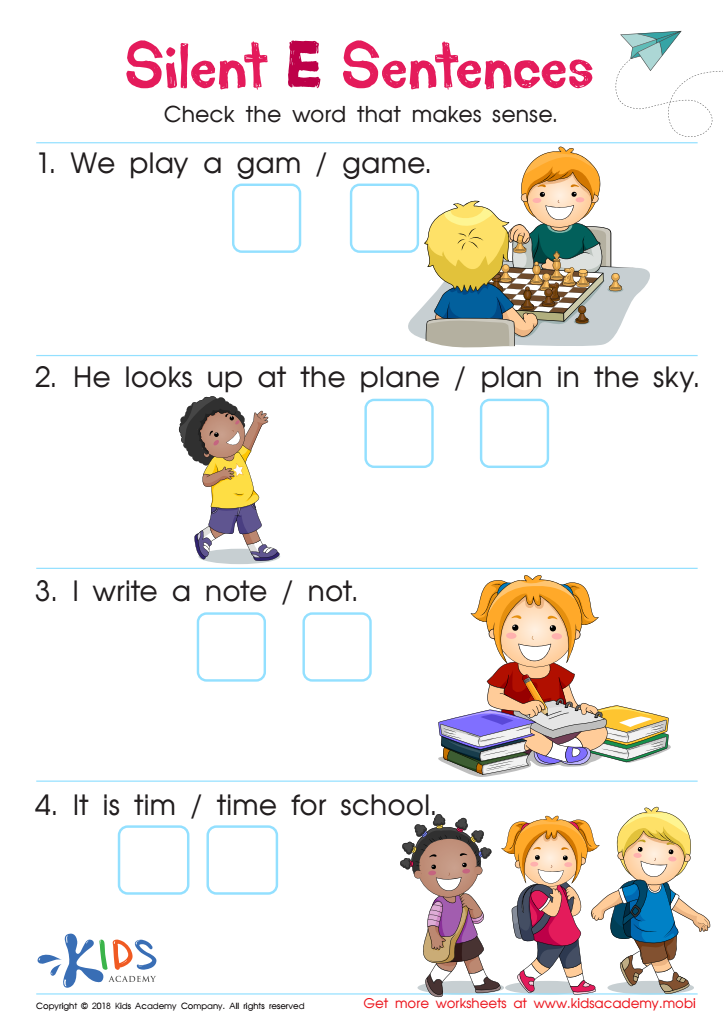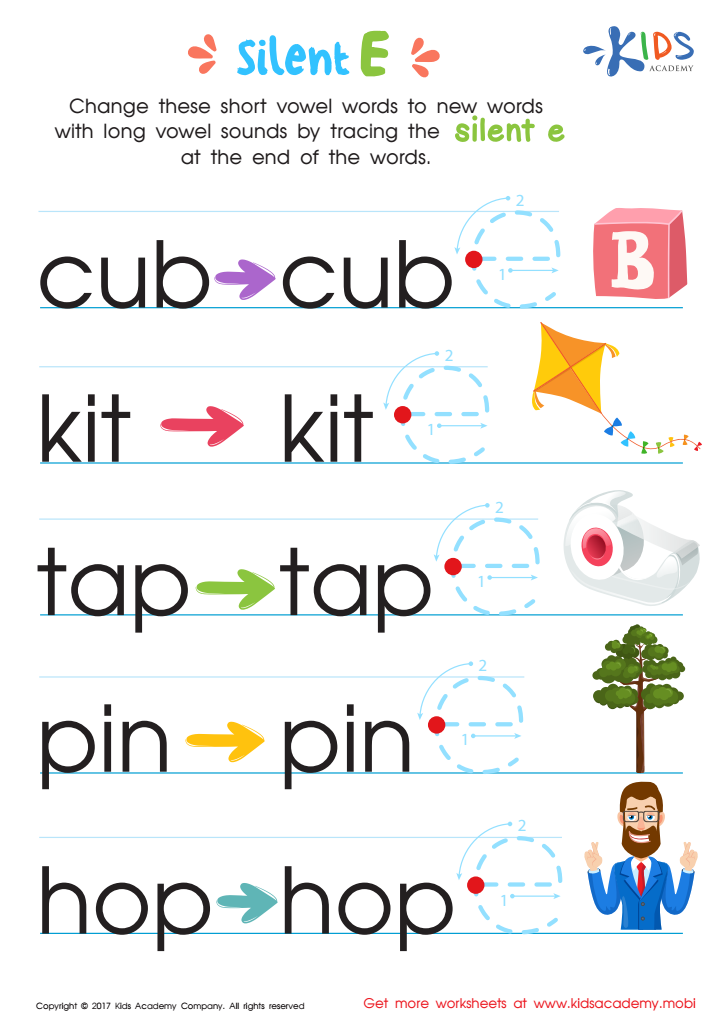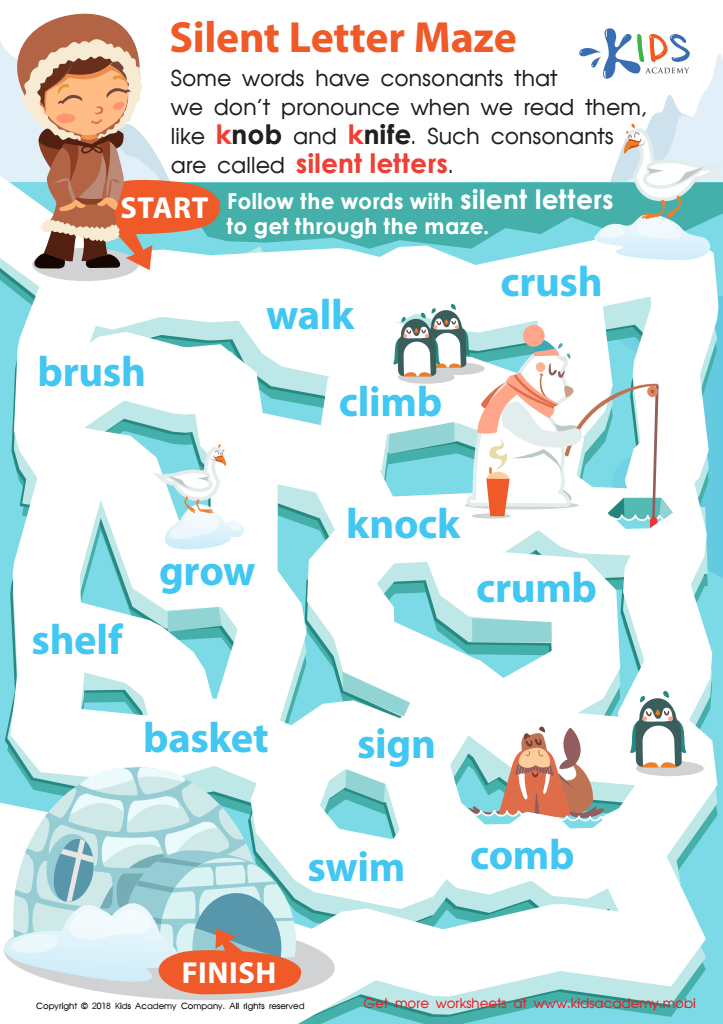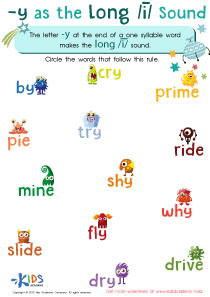Spelling practice Normal Silent Vowels Worksheets for Ages 3-9
3 filtered results
-
From - To
Enhance your child's spelling skills with our "Normal Silent Vowels Worksheets" designed for ages 3-9! This collection focuses on the often tricky concept of silent vowels, helping young learners recognize and master key spelling patterns. Each worksheet is carefully crafted to engage kids through interactive activities that reinforce their understanding of silent letters in various words. Perfect for early grade teachers and parents, these resources make learning fun and effective, fostering confidence in reading and writing. Download now to discover easy-to-use worksheets that support your child's educational journey and lay a strong foundation for their future academic success!


Silent E Sentences Worksheet


Silent E Words Worksheet


Silent Letter Maze Worksheet
Spelling practice focusing on normal silent vowels is crucial for children aged 3-9, as it lays a strong foundation for their literacy skills. This age group is pivotal for language development, and understanding silent vowels enhances decoding and spelling proficiency, significantly affecting reading fluency. Silent vowels appear in many common words, such as "cake," "ride," and "time"; mastering these sounds assists children in recognizing patterns and improving their overall reading comprehension.
Moreover, incorporating silent vowels in spelling practice enriches vocabulary acquisition, as children learn to identify and pronounce words correctly. This boosts their confidence and willingness to read aloud, fostering a love for literature. Early spelling practice also links with improved writing skills, allowing children to express themselves clearly and creatively.
Teachers and parents influence students' attitudes toward learning; showing enthusiasm for spelling practice models a positive attitude. Incorporating engaging activities—like games or storytelling—can make learning fun, ensuring lasting interest in language.
Ultimately, focused spelling practice in this area aids cognitive development, enhances communication skills, and nurtures a lifelong appreciation for the nuances of language, equipping children for future academic success. Parents and teachers play a crucial role in this fundamental phase of learning.
 Assign to My Students
Assign to My Students









